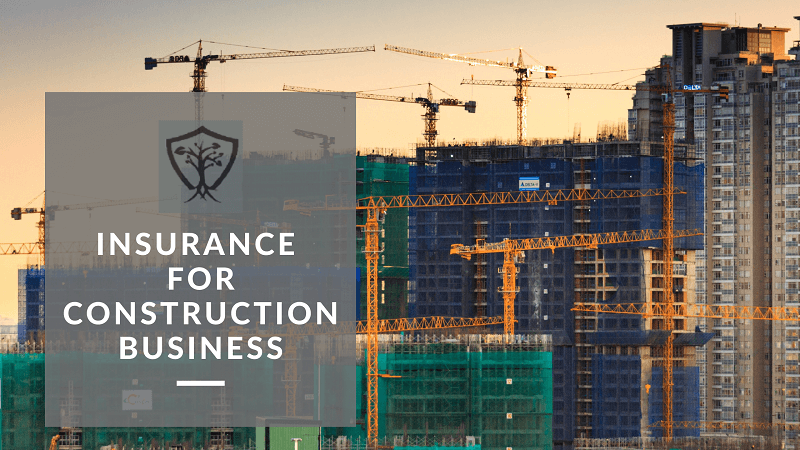To complete a construction project, you need, among other things, large machinery, contractors, and workers. This complex working environment creates possibilities for third-party damages, bodily injuries, as well as potential litigation. While the adoption of advanced technology and machinery can reduce some of the inherent risks, it can also increase the chances of other risks.
The essential insurance policies for a construction business include:
-
General Liability Insurance
General liability insurance (also known as contractor general liability insurance or commercial liability insurance) is a type of insurance that offers liability protection to all kinds of businesses, in the event of property damage or bodily harm related to their businesses operations. Insurers offer various types of liability policies to construction businesses. General liability insurance typically covers a wide range of third-party liability risks, including:
- Faulty workmanship
- Job-related injuries
- Advertising injury or defamation
-
Professional Liability Insurance
This type of liability insurance covers professional errors that financially impact a construction project. These include errors in value engineering or design or modifications that cause issues with the project. Professional liability insurance only covers the financial damage caused by your error, meaning it doesn’t cover the cost of rectifying the error.
-
Pollution Liability Insurance
Pollution liability insurance provides liability coverage if you’re deemed responsible for a pollution incidence. For example, if you use fuel tanks and chemicals in your worksite, you run the risk of causing a pollution incidence. Commercial liability insurance policies usually exclude pollution insurance. Even if you can add pollution liability coverage through an endorsement, the pollution endorsements usually offer significantly less coverage than separate liability insurance policies. Therefore, you should determine your risk level to ensure you’re adequately protected.
-
Commercial Auto Insurance
Commercial auto insurance provides coverage for automobiles used for business purposes. This type of insurance helps policyholders to meet the state-mandated minimum liability coverage as well as avoid costly lawsuits, medical expenses, and vehicle repair costs emanating from auto accidents.
-
Inland Marine Insurance
Originally designed to cover ocean-bound vessels and materials, inland marine insurance has evolved over the years into a robust policy that protects the property in transit, property in storage, property being held by a repairman, property that’s used in various locations, and even digital information and computer equipment. In the construction industry, this policy mainly covers equipment and tools, and therefore, it’s also called contractor equipment insurance or tool and equipment insurance.
-
Contractor License Bonds or Surety Bonds
Some states require construction businesses to get surety bonds or contractor license bonds to ensure that customers get the promised services. It’s a legal contract that ensures contractors will comply with their contractual obligations. Being bonded means the business has adequate financial resources to complete the work required.
-
Workers’ Compensation Insurance
Workers’ compensation insurance is a type of insurance designed to shield businesses from lawsuits if workers are injured on the job. In case of a covered incident, the policy covers the following:
- Medical costs
- Missed wages
- Ongoing recovery costs
- Legal expenses in case you’re sued
- Death benefits and funeral costs
Workers’ compensation is mandatory coverage in most states across the country.
-
Cyber Insurance
Cyber insurance protects your business’s data, including customer and vendor data. As construction businesses increasingly rely on technology – whether it’s smart technology and construction equipment or software used to manage business functions – there is a need to protect the streamed data.
Because construction businesses face various insurance risks, they need various layers of insurance protection. If you need customized and cost-effective insurance for your construction company, contact our experts at Modab Insurance Services today.

